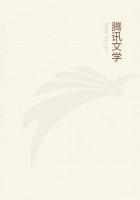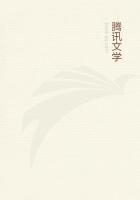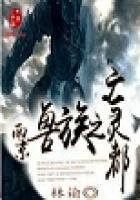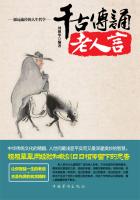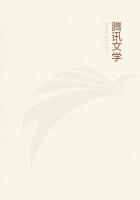I do not know any stories more finished than these. They certainly prove that George Sand had the artistic sense, a quality which has frequently been denied her. The characters in these stories are living and active, and at the same time their psychology is not insisted upon, and they do not stand out in such relief as to turn our attention from things, which, as we know, are more important than people in the country. We are surrounded on all sides by the country, and bathed, as it were, in its atmosphere.
And yet, in spite of all this, the country is not once described.
There is not one of those descriptions so dear to the heart of those who are considered masters in the art of word-painting. We do riot describe those things with which we live. We are content to have them ever present in our mind and to be in constant communion with them.
Style is, perhaps, the sovereign quality in these stories.
Words peculiar to the district are introduced just sufficiently to give an accent. Somewhat old-fashioned expressions are employed, and these prove the survival of by-gone days, which, in the country, are respected more than elsewhere. Without any apparent effort, the narrative takes that epic form so natural to those who, as _aedes_ of primitive epochs, or story-tellers by country firesides, give their testimony about things of the past.
I am aware that George Sand has been accused of tracing portraits of her peasants which were not like them. This is so absurd that Ido not consider it worth while to spend time in discussing it.
It would be so easy to show that in her types of peasants there is more variety, and also more reality, than in Balzac's more realistic ones. Without being untruthful portraits, it may be that they are somewhat flattered, and that we have more honest, delicate and religious peasants in these stories than in reality.
This may be so, and George Sand warns us of this herself. It was her intention to depict them thus.
It was not absolute reality and the everyday details of the peasants' habits and customs that she wanted to show us, but the poetry of the country, the reflection of the great sights of Nature in the soul of those who, thanks to their daily work, are the constant witnesses of them. The peasant certainly has no exact notion of the poetry of Nature, nor is he always conscious of it.
He feels it, though, within his soul in a vague way. At certain moments he has glimpses of it, perhaps, when love causes him emotion, or perhaps when he is absent from the part of the world, where he has always lived. His homesickness then gives him a keener perception.
This poetry is perhaps never clearly revealed to any individual, not to the labourer who traces out his furrows tranquilly in the early morning, nor to the shepherd who spends whole weeks alone in the mountains, face to face with the stars. It dwells, though, in the inner conscience of the race. The generations which come and go have it within them, and they do not fall to express it.
It is this poetry which we find in certain customs and beliefs, in the various legends and songs. When Le Champi returns to his native place, he finds the whole country murmuring with the twitter of birds which he knew so well.
"And all this reminded him of a very old song with which his mother Zabelli used to sing him to sleep. It was a song with words such as people used to employ in olden times."In George Sand's pastoral novels we have some of these old words.
They come to us from afar, and are like a supreme blossoming of old traditions.
It is all this which characterizes these books, and assigns to them their place in our literature. We must not compare them with the rugged studies of Balzac, nor with the insipid compositions of the bucolic writer, nor even with Bernadin de Saint-Pierre's masterpiece, as there are too many cocoanut trees in that. They prevent us seeing the French landscapes. Very few people know the country in France and the humble people who dwell there. Very few writers have loved the country well enough to be able to depict its hidden charms.
La Fontaine has done it in his fables and Perrault in his tales.
George Sand has her place, in this race of writers, among the French Homers.


